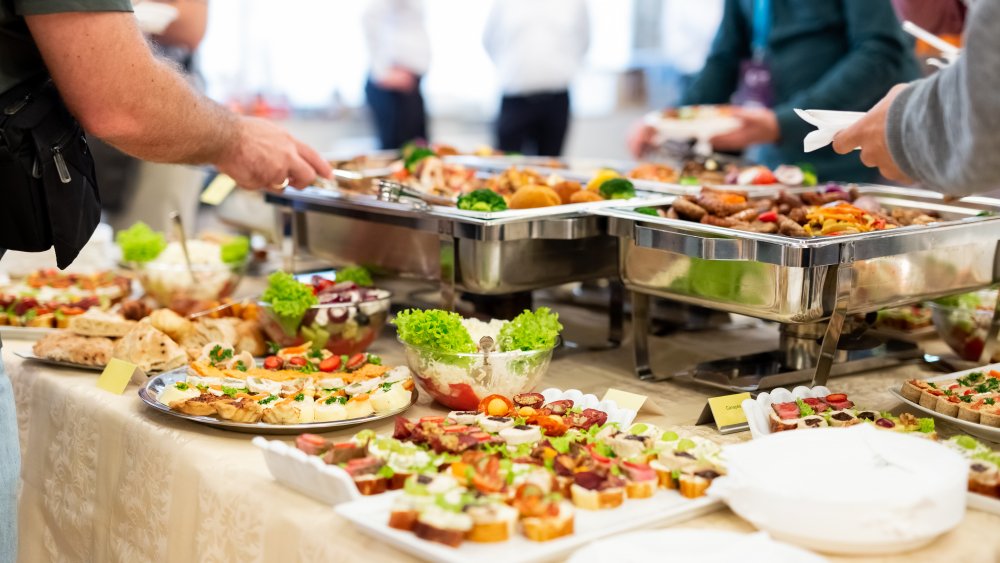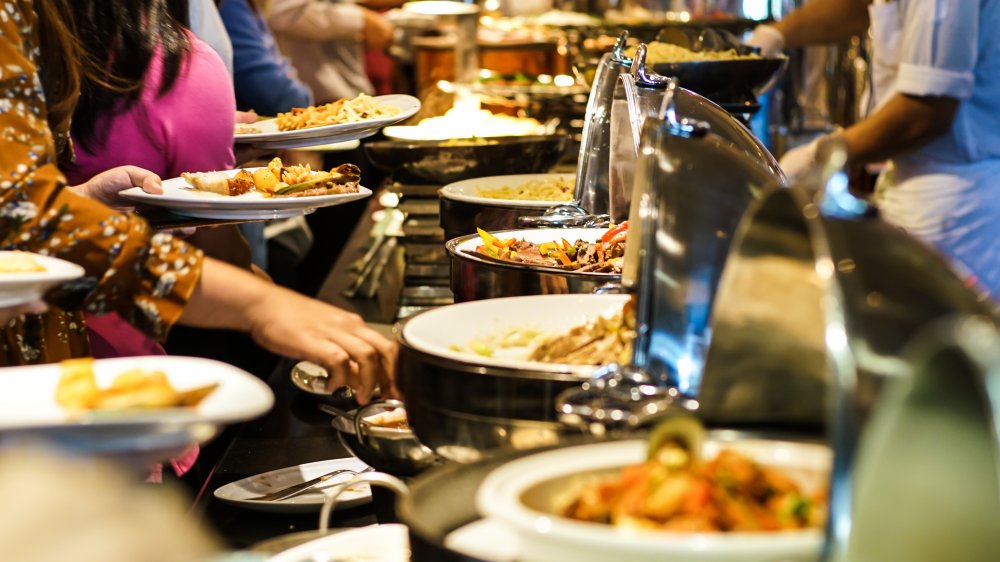The Buffet Food You Should Never Eat
A buffet line with different hot dishes, salads ranging from veggie, to pasta, to jello, and mini-desserts represents a true all-American dining tradition: the buffet. Expand this idea with our melting pot of cultural cuisines and you can enjoy all-you-can-eat curries, sweet and sour everything, and even your choice of noodles freshly stir-fried. In the United States, we simply love our variety and choice of food. Yet, whether a buffet features high-end artisan creations, or plate-filling budget bargains, everyone seems to agree that some choices are better than others.
So, what tops the list for buffet foods we should all avoid? Fried foods seem worth saying "no" to. In addition to adding a hefty serving of calories to what is likely already an indulgent meal, fried food is best fresh. If you eat fried food from a buffet, there's a good chance it will be soggy and gross by the time you're ready to eat (via ShowBiz Cheatsheet).
You may also wish to avoid dishes made with lightly cooked eggs, like Caesar salad, rice pudding, or even soufflé due to health concerns; after all, you can't control how long the dish sits out, or if the eggs were cooked safely in the first place. Potato or macaroni salad can also contain an egg-based mayonnaise, which should be maintained at a safe temperature to avoid food-borne illness. But is it?
Safety comes first at the buffet
Up next on the list of foods to skip at the buffet is seafood. Raw foods like sushi are only safe to consume if kept cool and fresh. Oysters should only be consumed when they are very fresh, so take note of how far that seafood may have traveled. Likewise, crab legs at a highly-affordable restaurant were likely purchased at a highly affordable price — they are not likely to make you sick, but are definitely not top quality.
The important things to review before choosing (or avoiding) your buffet food are freshness and temperature. FDA guidelines state that cold food should be kept at 40 degrees or colder, hot food should be kept at an internal temperature of 140 degrees or higher, and protein dishes like eggs and many types of meat should be cooked to at least 165 degrees. It's important to remember that buffet warmers can only heat to 120 degrees, keeping your food warm, but still in the danger zone. Finally, take note of the staff around you to see if they are quickly changing out dishes and cleaning thoroughly.

